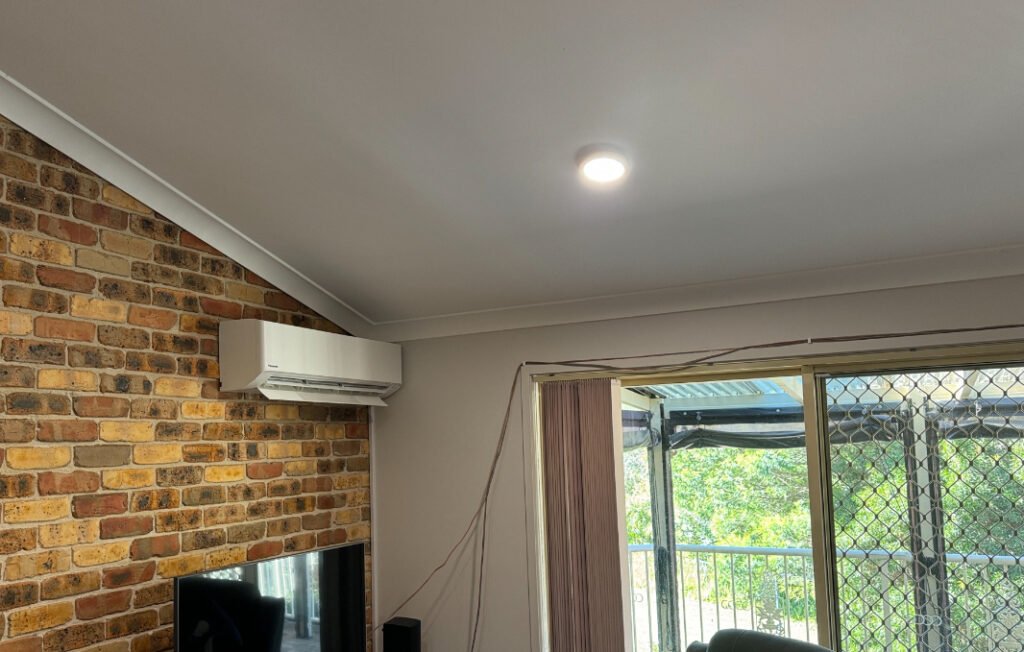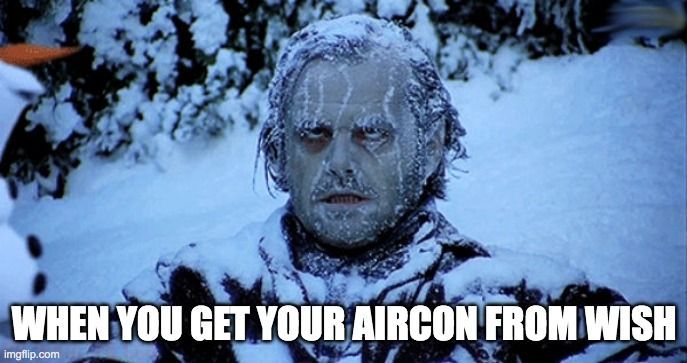
Why Size Matters
Are you stressed about picking the right size air conditioner for your home? You’re not alone. Many homeowners feel confused by all the choices out there. At Chilko AIR, we understand how tricky this can be, and we’re here to help. In this article, you’ll learn how to select the perfect air conditioning system for your home, ensuring comfort, efficiency, and peace of mind.
Getting the right size air conditioner is crucial for several reasons. If the unit is too small, it won’t cool your home properly, leaving you hot and uncomfortable. It will also work too hard, which can cause it to wear out faster and increase your power bills as it struggles to meet demand. On the other hand, if the unit is too big, it will cool the room too quickly without removing enough humidity, leading to a cold, clammy environment. It will also switch on and off too often, wasting energy and putting unnecessary strain on the system. The right size unit ensures your home is comfortable, uses less energy, and has a longer lifespan, ultimately saving you money.
Key Factors in Determining the Right Size
Several factors influence the size of the air conditioning system you need:
- Home Size: The size of your home is the most obvious factor. Larger homes require more cooling and heating power. Measure the square meterage of the area you want to cool. This is the starting point for determining the size of your air conditioner. Generally, you can estimate the cooling power needed by multiplying the square meterage by a factor of about 0.14 kW. (140 watts) For example, a 100 square meter area might need a 14 kW unit, but this is just a rough guide.
- Insulation and Windows: Good insulation and energy-efficient windows help keep the cool air in, meaning you might not need as big a unit. Poor insulation or older, single-glazed windows can let cool air escape and warm air in, requiring a more powerful system to maintain a comfortable temperature. Modern homes often feature better insulation and double-glazed windows, which can significantly reduce the cooling/heating load.
- Number of People and Usage: More people generate more heat, so a home with a larger family or frequent visitors might need a bigger unit. Similarly, if certain rooms are used more often, you may need additional cooling capacity in those areas. For example, a living room that hosts family gatherings regularly will need more cooling than, say, a guest bedroom.
- Orientation of the House: The direction your house faces can also impact your cooling needs. Homes with large windows facing west will receive more afternoon sun, increasing the cooling load. On the other hand, homes with north-facing windows in the Southern Hemisphere receive more consistent sunlight throughout the day, affecting the overall temperature balance.
- Ceiling Height: Higher ceilings can mean more space that needs to be cooled. If your home has high ceilings, you might need a more powerful air conditioner to effectively cool the larger volume of air.

To find the right size air conditioner, you’ll need to do some calculations:
- Manual J Load Calculation: This is a standard way to figure out how much cooling your home needs by considering all the factors above. A Manual J calculation takes into account the size of your home, insulation levels, windows, climate, and more to provide an accurate estimate of your cooling requirements. This comprehensive assessment ensures that all variables affecting your home’s cooling needs are considered, leading to a more precise and efficient system selection.
- Kilowatts Explained: Air conditioners in Australia are usually rated in kilowatts (kW). The number of kW you need depends on your home’s specific features. A general rule of thumb is that you need about 0.13 kW of cooling power per square meter of space, but this can vary based on other factors. Understanding these ratings can help you compare different units and choose one that matches your needs.
Professional Help
Deciding whether to get professional help depends on your confidence and skills:
- When to Get Professional Help: If you’re not sure about the calculations or have a complicated home layout, it’s best to call a professional. They can do accurate load calculations and recommend the best system. Professionals have the expertise to consider all variables and ensure your system is properly sized and installed, which can prevent future problems and inefficiencies. They can also help you navigate the complexities of different air conditioning models and features, ensuring you get the best unit for your specific needs.
Energy Efficiency and Cost Considerations
Choosing an energy-efficient system is just as important as getting the right size:
- Energy Ratings: Look for systems with high energy star ratings. These use less power, saving you money on your electricity bill and helping the environment. Energy star ratings provide a clear indicator of how efficient a unit is, with higher ratings meaning better efficiency. Investing in a high-rated unit might have a higher upfront cost but can lead to significant savings over the system’s lifetime.
- Long-term Savings: An energy-efficient, properly sized air conditioner might cost more upfront but will save you money over time with lower energy bills and fewer repairs. Efficient systems reduce your overall energy consumption, which can significantly lower your monthly expenses. Additionally, they tend to have longer lifespans, reducing the need for costly replacements.
- Seasonal Energy Efficiency Ratio (SEER): SEER ratings are another important factor to consider. They measure the cooling output of an air conditioner divided by the energy it uses in a typical cooling season. Higher SEER ratings indicate more efficient units. Investing in a unit with a high SEER rating can provide significant savings on your energy bills over time.
- Maintenance Costs: Regular maintenance is crucial for keeping your air conditioner running efficiently. Properly sized and maintained units are less likely to break down, reducing repair costs. Consider the long-term maintenance requirements and costs when choosing your system. Regular servicing can also ensure that your unit operates at peak efficiency, further reducing energy costs.
- Rebates and Incentives: Many energy companies and governments offer rebates and incentives for installing energy-efficient systems. Check with your local providers to see if you qualify for any programs that can offset the initial cost of your air conditioner. These incentives can make high-efficiency units more affordable and attractive options.
Picking the right size air conditioner for your home doesn’t have to be hard. By understanding the key factors, doing the right calculations, and knowing when to ask for help, you can make a smart choice that keeps you cool and saves you money. Remember, the experts at Chilko AIR we are always here to help with your air conditioning needs. Contact us for professional advice and services, and keep your home comfortable all summer long. With the right system in place, you can enjoy a cool, energy-efficient home, no matter how hot it gets outside. Your investment in the right air conditioning system will pay off in comfort, savings, and peace of mind for years to come.

